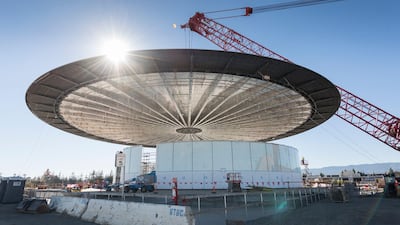A key indicator of Dubai's non-oil economy rose in January, boosted by gains in construction as investment in infrastructure ahead of Expo 2020 picks up. The gauge also got a boost from increased activity in the wholesale and retail sector as consumption gathers pace following tighter spending amid low oil prices over the past three years.
The Emirates NBD Dubai Economy Tracker rose to 56 in January from 54.7 in December, when the measure fell to a 14-month low. A reading above 50 suggests the non-oil economy is growing, while a reading below 50 suggests a contraction. The survey is sponsored by Emirates NBD, Dubai’s biggest bank by assets, and produced by IHS Markit, a financial information services company.
"The rise in the Dubai Economy Tracker Index signals a strong start to 2018, despite the introduction of VAT putting upward pressure on both input and output prices," said Khatija Haque, head of Middle East and North Africa research at Emirates NBD.
"The construction sector had a particularly strong month in January, and this supports our view that construction will be a key driver of Dubai's growth this year."
___________
Read More:
Dubai non-oil index slips in November as job creation slows
UAE PMI makes highest gain since August on new businesses
____________
Construction companies had the steepest increase in output during January, followed by wholesale and retail. In absolute terms, the wholesale and retail sub-index was the best performing at 56.1, followed by travel and tourism at 55.7 and construction at 55.2.
The survey found that new jobs in January rose the eleventh consecutive month, the sharpest gain since November 2015. It also found that the volume of new business rose for the twenty-third straight month in January.
On the selling price front, prices rose at the fastest pace in three years in January due to the implementation of VAT and charges in the retail and wholesale sector rose to a record, the authors of the survey said.

